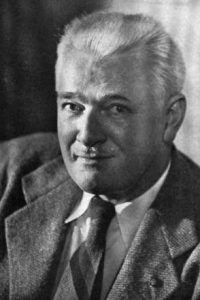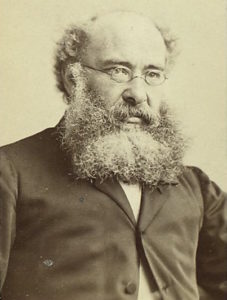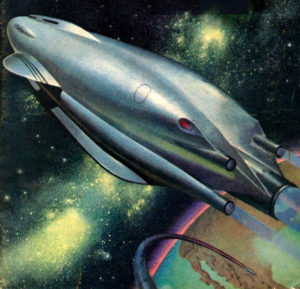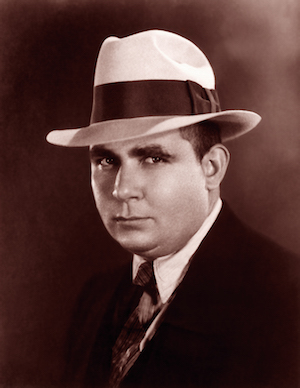H Bedford-Jones was one of the most prolific writers of his era. His only rival was the equally prolific Fredrick Faust (aka Max Brand).
During his 40 year career, HBJ sold 231 novels, 21 novellas, 372 novelettes, and 748 short stories — more, or less. We write “more, or less” because HBJ used so many pen names it is difficult to pin down with exactness everything he wrote and got published.
After his death, however, his name, along with those of many of his fellow pulp fictioneers, faded into oblivion.
Thankfully, the renewed interest in the fiction of the pulp era is restoring the reputations of the many fabulous writers that era produced.
Consequently, we can now find many of H Bedford-Jones’s works back in print.
One of the most enjoyable books I read last year was HBJ’s lost race novel The Buddha’s Elephant, published in 1916 in All Around Magazine, under his Allan Hawkwood byline. The book is a rousing adventure yarn that is thrilling and suspenseful.
HBJ, because of his prolificity, was dubbed “The King of the Pulps”. His prolificity also earned him during the 1920s $60,000 to $100,000 per year. Which in today’s money would be equal to a few million dollars in purchasing power.
What was the key to his prolificity, and the key to his popularity? Let’s take a look at each in turn and see if we can’t find some clues.
Prolificity
What I’ve gleaned from HBJ’s book This Fiction Business and from information in King of the Pulps: the life and writings of H Bedford-Jones by Ruben, Richardson, and Berch, HBJ viewed writing as a job. In fact, it was his job. He had no other source of income. Writing was it. Consequently, if he wanted to eat, he had to write.
HBJ was not a good record keeper. One of the reasons why we aren’t sure what his total output actually was.
The estimate is that HBJ wrote at least 25 million words in his 40 year career. That means he wrote on average 625,000 words or more per year, or about 1712 words per day at a minimum.
On a good day, I can write those 1712 words in an hour and a half. However, HBJ advised writers to work 4 to 5 hours a day at just writing, and the rest of the work day reading or studying. He limited writing to four or five hours, because writing is exhausting work, and he felt we should protect ourselves from exhaustion.
My guess is that HBJ wrote far more than 1712 words in a day, at least up until a heart attack left him in poor health. In fact, he advised writers to write between 5,000 and 10,000 words per day.
Nevertheless, if you start at age 25 writing 1712 words per day — you will have your 25 million words by the time you are 65. The same as HBJ.
Another key to HBJ’s prolificity was that he did not let writer’s block get in his way. He had four typewriters loaded with stories in progress. If he got stuck on one, he just moved over to another machine.
I do the same thing and I can tell you — it works!
HBJ also wrote in series. Doing so speeds production because you don’t need to think about scene or setting. The world of the story is set — just start writing.
Popularity
In his day HBJ was exceedingly popular. What was the key to his success?
It lay in avoiding what HBJ called The Deadly Sin. That is, “The lack of perception as to what must be emphasized…”.
How does this lack of perception manifest itself? By not letting the reader follow and share the emotions of the hero in detail. By skimming over the crucial conflicts — by not sharing the details of the hero’s thoughts and feelings with the reader. To quote HBJ:
The reader wants the situation prolonged in proportion to its bigness, or at least emphasized: even though it passes in a moment’s time.
Let the reader share in the agonies and the ecstasies of the hero. Don’t gloss over them.
I recently read three books by a writer who is very high up on the Amazon charts. I read them because even though they were loaded with PC pandering (which I don’t like), he didn’t commit The Deadly Sin.
And neither did HBJ.
Therefore, I got to experience the ups and downs the main character experienced in both writer’s books.
Lessons Learned
H Bedford-Jones was a giant among the writers of his day. He was prolific and he was popular.
So what can this man who died in 1949 teach us today about This Fiction Business? I think it is two-fold:
-
- Plant butt in chair and write. Write like your supper depends on it. 5000 to 10,000 words per day needs to be your goal, according to HBJ.
- Don’t cheat your readers. Let them freely and fully experience the main character’s emotions. Give the reader a powerful vicarious experience.
H Bedford-Jones should be on every writer’s reading list. If you want to be a successful writer, he is a fine exemplar to follow.
Comments are always welcome! And until next time, happy reading!
Share This!


